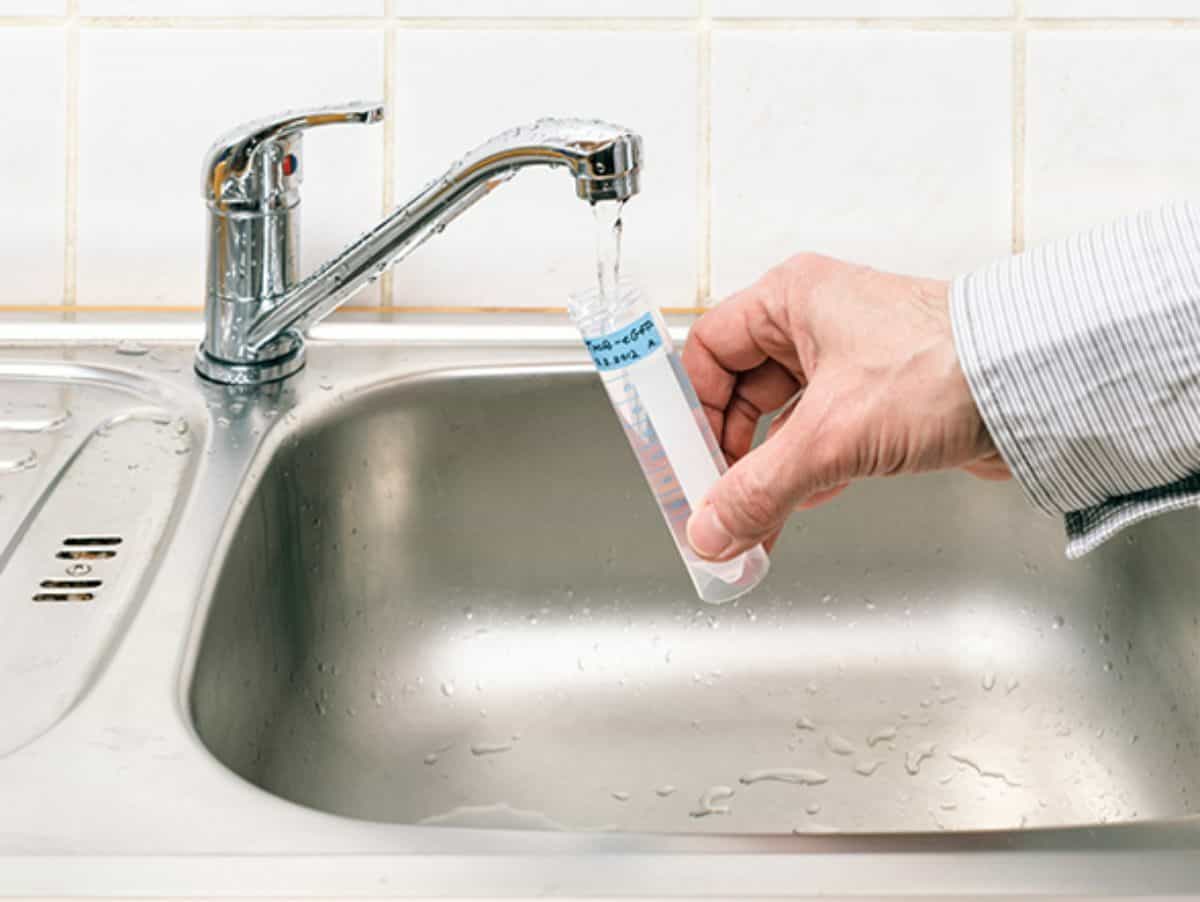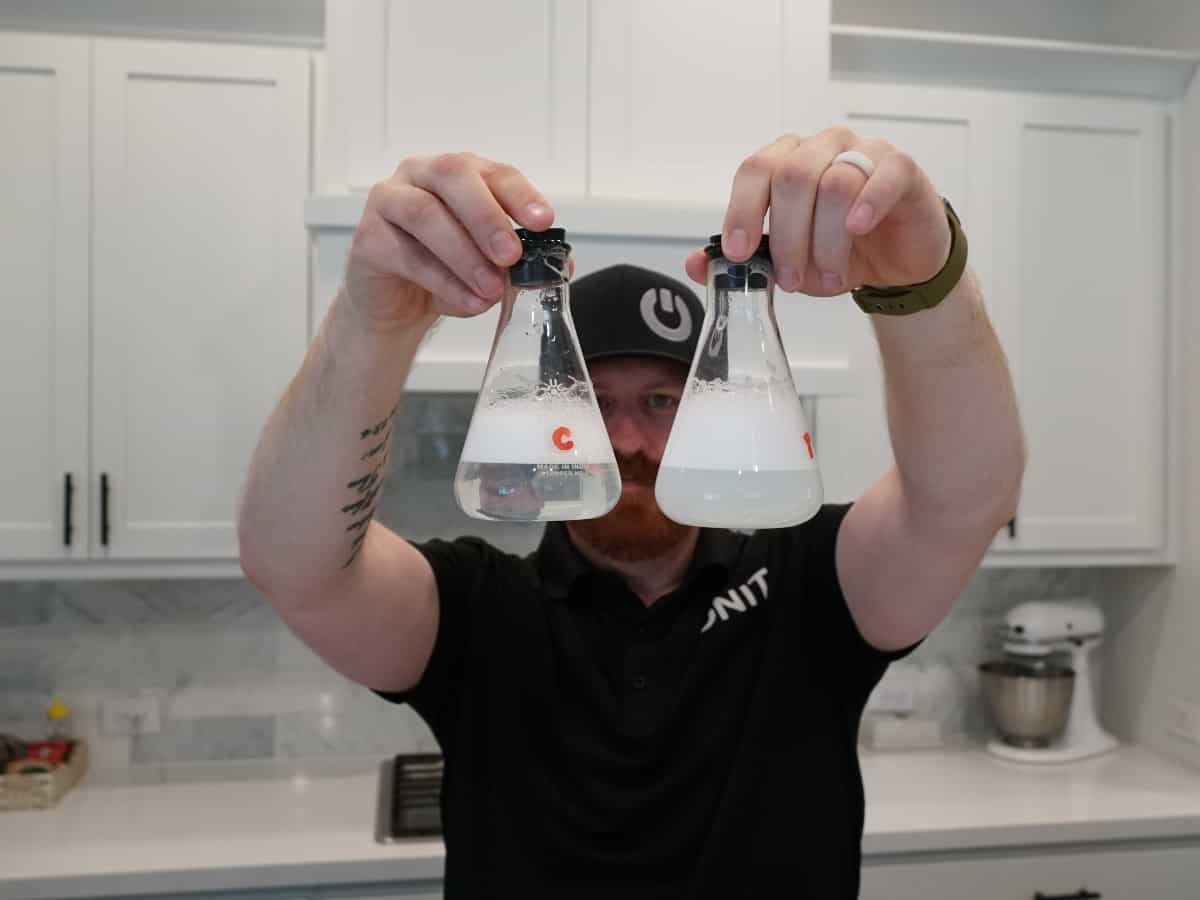Every homeowner should consider regular testing of the household water supply. Those on a city water supply benefit from pre-treated water. They also have access to an annual water test. But, the EPA standards are decades out of date and no city can afford to remove all contaminants. To get the most out of your water test results, it’s helpful to understand how they work. It’s also useful to know what contaminants are and what impact they can have on your health and home.
Who Should Get Their Water Tested?
Most well owners understand the importance of testing their water supply. There’s a false perception by those on city water that it is effectively treated. The reality is that city water may not be delivering safe, healthy drinking water to your home. In Atlanta, for example, fourteen different contaminants showed up in their water test results. Of the fourteen, nine contaminants were high enough to be a health concern.
The EPA offers guidelines for those considering water testing. The EPA informs homeowners of the annual testing performed by the city. Known as Consumer Confidence Reports, they tell customers about the levels of contaminants found in the city supply.
Community Water Source:
- First, if you suspect lead may be present
- Before you install a home water treatment unit
Private Water Source:
- At the start of pregnancy, just before the baby is born, and during the first year of the child’s life
- When odors, foul tastes, or stains from your water are noted
- After nearby chemical or fuel spills
- When your household is getting, especially with gastrointestinal issues, for no discernible reason
- Your soap isn’t lathering or foaming properly
- If your water is murky or discolored
- When you notice rust particles in your water or spot corrosion on your pipes
- Coal or other mining operations occur nearby
- Gas drilling or chemical processing plants operate in your area
- If you are near intense farming operations
- A major industrial facility, including dumps, junkyards, factories, or dry cleaners, are near
How Often?
For private wells, it’s a good idea to test your water annually. Do so again if you replace the well or its casing or replace the pumps. For those on a city water supply, test if you notice water taste changes or odors. Also, when a local chemical leak, fuel leak, or other contaminant concern occurs nearby, test your water.

What Does a Water Test Look For?
There are many different types of contaminants that may be present in your water. Some require different kinds of testing to detect. There are an array of tests that can be done. For example:
Microorganisms
Bacteria, parasites, and viruses can be found in water. If they are present in your drinking water, they can cause GI distress and infection. The common source is human and animal waste.
Nitrate and Nitrite
Nitrate is a product of sewage, animal waste, and fertilizers and converts to nitrites once in the body. In your water, it can be potentially deadly for infants, causing Blue Baby Syndrome. Furthermore, nitrite can lead to thyroid dysfunction.
Heavy Metals
Heavy metals come from a variety of industrial and household sources. These include arsenic, cadmium, copper, cobalt, lead, selenium, and much more. If consumed at toxic levels, heavy metals can damage the liver, kidneys, GI system, and lead to anemia and cancer.
Organic Chemicals
Organic chemicals come from household, agricultural, and industrial sources. This includes inks, paints, dyes, pesticides, petroleum products, disinfectants, sealants, solvents, and medications. At high levels, they can damage the kidneys, liver, nervous system, reproductive system, and circulatory system.
Radionuclides
Less common, but worthy of note, these are radioactive forms of elements like radium and uranium. They are of greatest concern for those in the vicinity of coal mining, uranium mining and production, and nuclear power plants. Drinking water that contains these elements increases the risk of cancer and damages the kidneys.

A Comprehensive Water Quality Test Provides a Path Forward
ONIT Home offers a comprehensive water test that takes less than an hour to complete. It includes nine different tests performed on your home water and a review of your city’s water report. We will also explain the water test results and answer any questions you may have.
These include:
Bromine
At high levels, bromine can cause eye and throat irritation. When combined with chlorine and organic compounds, it can lead to an increased risk of cancer. ONIT Home uses a photometer to test for bromine levels.
Chlorine
The presence of chlorine at unhealthy levels leads to an increased risk of cancer and heart disease. The absorption and inhalation of chlorine can lead to asthma and other breathing problems. Chlorine also results in dry hair and skin. To test for the presence of chlorine, ONIT uses a pool test kit. A solution added to your tap water, after five minutes, will change color. The final color determines the amount of chlorine present.
Nitrite
As listed above, nitrite can be a serious problem for infants and lead to thyroid disorders. ONIT Home tests for nitrite using the photometer.
Hardness
Hard water is a product of minerals or rock in your water. This can lead to kidney stones and skin conditions. It can damage plumbing and water-using appliances. It will reduce the effectiveness of your soap and cleaning solutions and leave behind spots on your glassware. To test it, ONIT adds a solution to your household water. If it’s hard, it turns pink. If it’s soft, it turns blue.
Precipitate
While your water may look clear, it can contain small particles of solids in suspension. That means the solids are contained in the water. These solids could be rust particles, sand, sodium, hard water minerals, and more. To test for this, ONIT will take samples of water from different sources in your home along with a sample of ONIT filtered water and use chemicals to pull solids out of their state of suspension. This will allow them to settle at the bottom of the sample to be easily visible.
Chromium
At high levels, chromium can lead to allergic dermatitis or an increased risk of lung cancer. ONIT tests for chromium with a photometer. An excessive level is 0.1 mg/l or 100 ppb.
Handwashing Test
Sometimes, it’s easiest to understand the impact of hard water with a hands-on approach. ONIT Home will have you wash your hands and rinse with tap water and again with our filtered water to feel the difference for yourself. Hard water leaves a soapy residue behind that clogs pores and leads to dry hands. Our filtered water rinses away all the soap and allows your skin’s natural oils to keep your hands healthy.
Heavy Metals
As mentioned above, heavy metals can lead to a host of health issues. ONIT home uses a photometer to test for heavy metals including lead, mercury, cadmium, cobalt, and more.
Soap Shaker
The soap shaker test allows you to clearly see the impact hard water has on the effectiveness of your soap and other cleaning products. Two samples of water, one from your tap and another from ONIT filtered water, are shaken with liquid soap. Hard water will have fewer suds and a milky appearance from soap lingering in the water. Soft water will bubble vigorously, showing the improved effectiveness of soap and cleaners in soft water.

What Can a Whole Home Water Filtration System Offer?
Your water test results will provide you with an educated understanding of your water quality. Now you know the risks and challenges unfiltered water creates in your life. The benefits of a whole home water filtration system are clear. Furthermore, In addition to eliminating health concerns, it will also save you money. You will no longer need to buy bottled water because your tap water is undrinkable. Likewise, you’ll go through less soap and cleaning products. You’ll extend the lifespan of your water-using appliances and reduce plumbing repairs. Plus your skin and hair will feel a lot healthier.
ONIT Home is committed to helping you achieve a safer, healthier home. With your water test results in hand, we will help you understand your options. With affordable financing, we can help you get a water quality solution that suits your needs and your budget. The package includes both installation and equipment. The professional installation ensures less hassle for you. Our whole-home filtration systems will provide soft, healthy, tasty water on demand. For even greater peace of mind, our affordable extended warranty covers service and maintenance on your system. Call today at 1-833-433-0331 to get started with a free consultation and water quality test.



